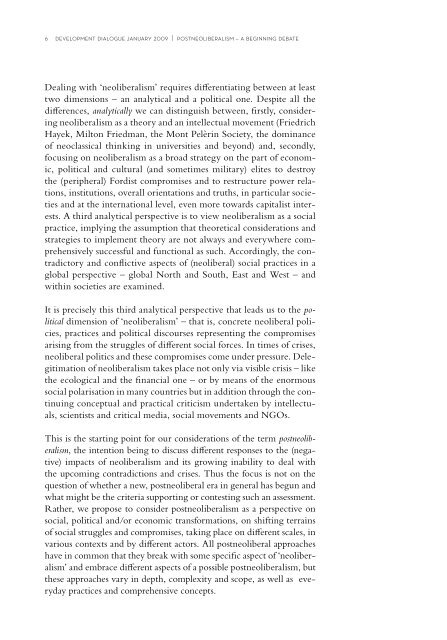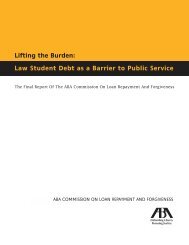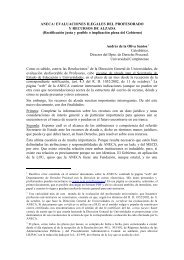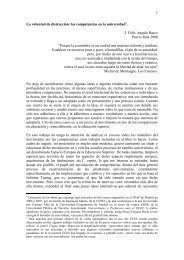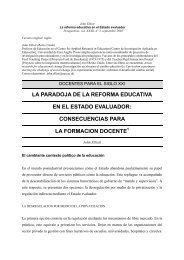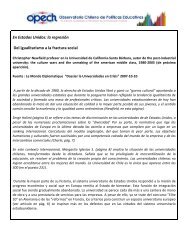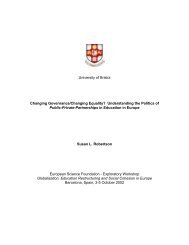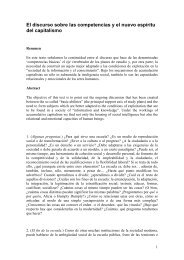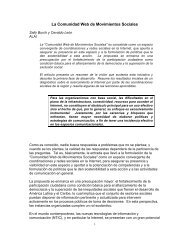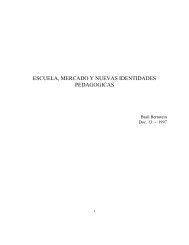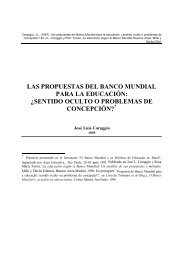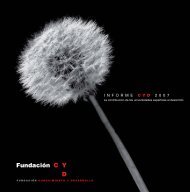no. 51 | january 2009
no. 51 | january 2009
no. 51 | january 2009
- No tags were found...
Create successful ePaper yourself
Turn your PDF publications into a flip-book with our unique Google optimized e-Paper software.
6 development dialogue <strong>january</strong> <strong>2009</strong> | postneoliberalism – a beginning debateDealing with ‘neoliberalism’ requires differentiating between at leasttwo dimensions – an analytical and a political one. Despite all thedifferences, analytically we can distinguish between, firstly, consideringneoliberalism as a theory and an intellectual movement (FriedrichHayek, Milton Friedman, the Mont Pelèrin Society, the dominanceof neoclassical thinking in universities and beyond) and, secondly,focusing on neoliberalism as a broad strategy on the part of eco<strong>no</strong>mic,political and cultural (and sometimes military) elites to destroythe (peripheral) Fordist compromises and to restructure power relations,institutions, overall orientations and truths, in particular societiesand at the international level, even more towards capitalist interests.A third analytical perspective is to view neoliberalism as a socialpractice, implying the assumption that theoretical considerations andstrategies to implement theory are <strong>no</strong>t always and everywhere comprehensivelysuccessful and functional as such. Accordingly, the contradictoryand confl ictive aspects of (neoliberal) social practices in aglobal perspective – global North and South, East and West – andwithin societies are examined.It is precisely this third analytical perspective that leads us to the politicaldimension of ‘neoliberalism’ – that is, concrete neoliberal policies,practices and political discourses representing the compromisesarising from the struggles of different social forces. In times of crises,neoliberal politics and these compromises come under pressure. Delegitimatio<strong>no</strong>f neoliberalism takes place <strong>no</strong>t only via visible crisis – likethe ecological and the financial one – or by means of the e<strong>no</strong>rmoussocial polarisation in many countries but in addition through the continuingconceptual and practical criticism undertaken by intellectuals,scientists and critical media, social movements and NGOs.This is the starting point for our considerations of the term postneoliberalism,the intention being to discuss different responses to the (negative)impacts of neoliberalism and its growing inability to deal withthe upcoming contradictions and crises. Thus the focus is <strong>no</strong>t on thequestion of whether a new, postneoliberal era in general has begun andwhat might be the criteria supporting or contesting such an assessment.Rather, we propose to consider postneoliberalism as a perspective onsocial, political and/or eco<strong>no</strong>mic transformations, on shifting terrainsof social struggles and compromises, taking place on different scales, invarious contexts and by different actors. All postneoliberal approacheshave in common that they break with some specific aspect of ‘neoliberalism’and embrace different aspects of a possible postneoliberalism, butthese approaches vary in depth, complexity and scope, as well as everydaypractices and comprehensive concepts.


